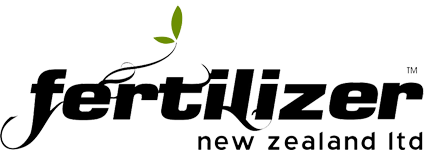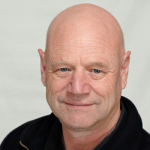October 2013
VIEWPOINT
with John Barnes, Managing Director – October 2013
The Status Quo!!!
It seems to me that the hardest thing to change in this world is the status quo and there are some very good reasons for this. The main one being that there is one big heap of serious money invested in the status quo. The second reason is that a huge number of people have their reputations and futures dependent on the status quo.
I ponder on these matters because it is so obvious to me that in the fertiliser world we are going to have to move away from the advice that is currently being dished out by various organisations and personnel. Furthermore we at Fertilizer New Zealand have built a business on doing things differently and more responsibly, with our clients being the beneficiaries of this approach. It was obvious years ago that we were endangering our environment by the overuse of acidic fertilisers and excess nitrogen.
But push as we might, change has been slow in coming. There are powerful lobby groups who have resisted change and fought to retain that which is known and accepted. There has simply been too much to lose as far as they are concerned and all they know is to fight their corner as hard as they can with all the money at their disposal. Not to do so in their eyes is tantamount to admitting that they have been wrong for many years, advocating more and more of the same recipe. Politicians and farming leaders likewise have not been open minded about looking at other options, preferring to stick to that safe old status quo, even though it is costing farmers dearly!!!
History teaches us that early adopters can sometimes get a bit of criticism on the hard journey to being accepted. Then at some point of course the tables turn and it is those who did not adopt new ways who are in danger of becoming old fashioned and obsolete. That is what I see happening as I talk to farmers across the country. The tide is definitely turning in favour of those who are choosing to take a more balanced approach to their fertiliser programmes.
In spite of what the “old guard” are telling people, increased production is being achieved with a more balanced and environmentally friendly programme such as Fertilizer New Zealand promotes. Change is coming and it is all good, both for the farmer and New Zealand’s reputation here and abroad.
Now at long last I am beginning to see signs that the old status quo is changing. If the “old guard” want to hang on to their hats then all they need to do is change along with us and work towards making their farms more productive and healthier and the streams, rivers and lakes pristine and beautiful once again. That is a goal that I have had for years and so I invite you to join me.
John Barnes
Laurie and Jenny Butland for many years had a hankering for the independence of a rural block and the lifestyle that goes with it. The day came in Laurie’s professional life when an option for redundancy came along and he grabbed it.
Once ensconced on their rural property in Ruatangata near Whangarei they surveyed the scene and looked at options for making some money off a reasonably compact area. Having attended Massey University and studied Horticulture it was pretty much inevitable that for Laurie any form of livestock was out and the land was going to be farmed intensively one way or the other. His studies had instilled in him a determination to respect the soil and its natural biology, therefore many forms of Horticulture which required heavy chemical inputs were immediately ruled out and he and Jenny finally settled on Olives.
Twin Oaks Grove was born, and ten years later the now mature Olive trees are producing Silver Medal award winning oil of the finest quality. Their customers are restaurants, retail shops and they also promote their product at farmers markets where they value the direct contact and feedback from customers. They are also fortunate to have a large circle of business contacts from Laurie’s previous occupation which help on the sales side.
With a brand maxim of “The Finest Soil The Finest Oil”, one can quickly determine where their priorities lie. The property’s already deep top soil is enhanced by the addition of microbes and liquid fertiliser from Fertilizer New Zealand who they have found to be on the same page when it comes to understanding the soil and what makes it produce at a high level. “Let the microbes in the soil do the work that nature intended and produce the nutrients for you”, Laurie says. Admittedly they need a bit of a help along by a top up once or twice a year plus small amount of liquid fertiliser and the addition of a lime based product and that is it. Period!!! Job done. It is both a cost effective and successful fertiliser programme that they are totally satisfied with. “The microbes maintain the soil structure in our grove and that is critical”, says Laurie.
Laurie and Jenny’s contact with their customers leaves them in no doubt that the buying public wants a product that has been produced with as few chemicals as humanely possible. In Laurie’s words “produced on organic principles”, and Fertilizer New Zealand supplies the products which allow us to do this. Peacock Spot is a problem in most Olive groves but not at Twin Oaks because it has been eliminated by the fertiliser programme recommended by John Barnes of Fertilizer New Zealand. This means a whole heap less work and in the time that we would have been worrying about applying copper based sprays which are weather dependent we can now go fishing, or at least do something very much more pleasant than spraying copper around.
When answering the obvious novices question about Olives which is, “I thought that Olives grew best in stony arid regions like the hills around Italy’s drier regions which we see on TV?” Laurie quotes the answer of his nurseryman who supplied the initial 1052 trees… “The trees will reward you for providing better soil and growing conditions.” The trees have indeed done this in two ways. The first is producing in quantity and second, by providing an olive which has superb taste, hence the silver medal.
The third and equally important reward is provided by Fertilizer New Zealand. “One of the criteria when we started this project was that we must have a system that allowed my wife and I to have a holiday at Christmas.” says Laurie, “I have accomplished this thanks to my fertiliser programme and the microbes in the soil which give me the soil health, and that in turn releases me from the drudgery of constantly spraying over this period. I will take fishing over spraying any day of the week!”
Sadly for them both, a health scare has meant that their fully developed Twin Oaks Olive Grove has to be put on the market. This will mean that some fortunate buyer will be able to reap the rewards of a lovingly tended grove of Olives with impeccable soil quality and a proven fertiliser programme. No doubt the new owners will also be able to tap into the extensive knowledge and passion of Laurie and Jenny, and this will be the big bonus.
MONITORING AND MEASURING
There is a saying that you cannot measure what you do not monitor. This goes for one of the two main ingredients for livestock – pasture and water. Pasture is not just about dry matter growth.
Listening to some consultants and the way they measure pasture, it is all about plate meters and how tall the pasture is. Quality is about residuals – pasture left behind. Little if any regard is given to the moisture content of the “dry matter”. In many cases this spring it will be significant. So take away the moisture content, and the dry matter will be lower. This being the case, the consultant could be a long way out in their feed budgets.
So back to the actual dry matter – the elemental composition of this pasture will dictate the production performance. For example having too much potash and not enough salt will inevitably lead to bloat. To find out the correct status of your pasture and how it will affect your livestock will save time and money.
Call us today to get your pasture tested. If pasture stimulation is needed then a balanced product should be used so that stock grow at optimal rates. 0800 337 869



